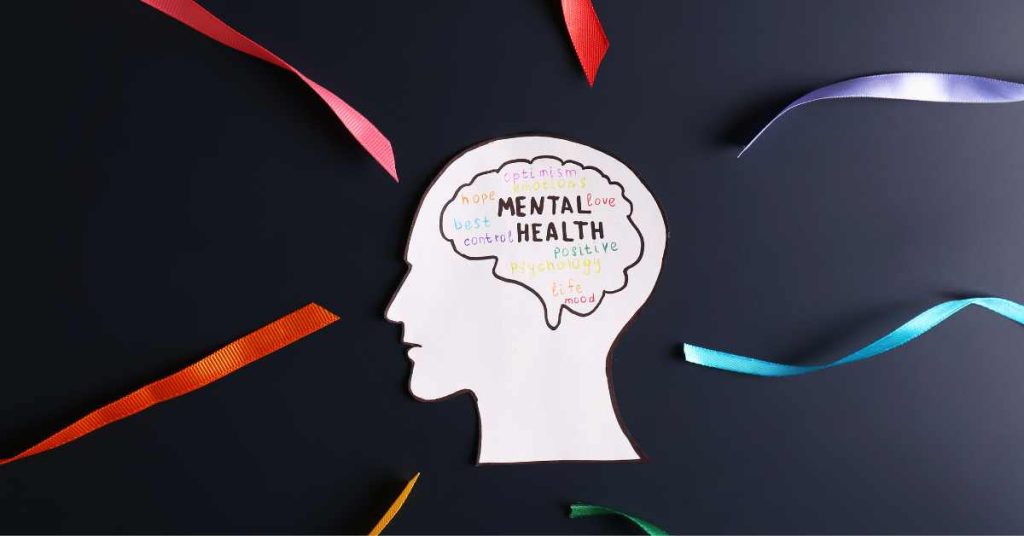Having the Courage to Seek Help: Lessening the Burden of Mental Health Stigma
Seeking mental health care can be a difficult decision. While society has made progress in advocating for mental health, stigma surrounding mental illness still remains. Negative portrayals circulated by media and society about mental illness, can turn individuals away from accessing mental health care, due to a fear of judgement or being perceived as weak or incapable. We at MentalService are blogging online about local mental health care services and psychological topics online. We welcome local mental care professionals blogging online with us.
Stigma can be characterized as negative attitudes and stereotypes that individuals may impose on those experiencing mental health conditions. These harmful and incorrect perceptions can lead others to feel discouraged when seeking support.
Different types of stigma exist that can turn individuals away from seeking mental health care:
Structural stigma: This includes systematic issues such as laws, regulations and policies that limit the rights of those affected by mental health conditions.
Public stigma: Refers to negative attitudes and beliefs from others towards those withmental health conditions. This can include family members and healthcare providers.
Self Stigma: Occurs when an individual internalizes societal stigma and self-judges. They may see themselves as flawed or blame themselves for what they are going through.
Cultural Stigma: Negative attitudes and beliefs about mental illness within a particular culture. Different cultures have varying attitudes about mental illness affected by deeply-rooted supernatural beliefs, religion, familial expectation and tradition.
It is understandable that fear of judgment can keep you from reaching out for support. There are strategies you can use to cope with stigma and feel empowered in your decisions to pursue steps towards healing and growing as a person.
The Impact of Mental Health Stigma on Treatment Access – Online Stigmal Mental Care Blog
Despite growing awareness around mental health, stigma continues to prevent many individuals from getting the support they need. People may avoid reaching out for help due to fears of being labeled unstable, weak, or overly emotional. This social pressure discourages early intervention and allows conditions like anxiety, depression, or PTSD to worsen. At MentalService.com, we provide confidential online mental health services to create a judgment-free space where individuals can talk openly, seek guidance, and take steps toward healing—without stigma or fear. We like to discuss online Stigma and Mental Health Care topics.
Changing the Narrative Around Mental Illness – Local Mental Service Care Information Chatting Online
One of the most powerful ways to reduce stigma is by changing how we talk about mental health. Replacing labels with empathy and facts helps normalize conditions such as anxiety, bipolar disorder, or OCD. By encouraging honest conversations and promoting psychology-based education, we challenge the outdated myths that keep people suffering in silence. Our platform at MentalService.com offers AI mental health tools and live counseling designed to support this shift—making mental care as approachable as physical care.
The Role of Online Therapy in Breaking Down Barriers
Virtual therapy is a key solution in combating stigma. For many, walking into a clinic may feel overwhelming, but logging into a secure session from home provides both comfort and privacy. Online therapy empowers users to take charge of their emotional wellness without social pressure. With licensed therapists available on MentalService.com, users can access personalized support for depression, trauma, grief, and more—on their terms, in their space.
Empowering Individuals Through Accessible Mental Health Services
Access to mental care shouldn’t depend on geography, income, or cultural acceptance. That’s why platforms like MentalService.com offer inclusive, easy-to-use online mental health services for all age groups. Whether you’re a student facing academic pressure or a parent juggling emotional burnout, seeking help should feel empowering—not shameful. Through our AI-driven self-help tools and real-timecounseling support, we’re working to remove the barriers that keep people from getting the care they deserve.
Ways to Deal with the Pressure of Stigma:
1. Online Mental Health Resources
Online mental health resources can be accessed anonymously and discreetly if that is something that is of concern. Websites such as mentalservice.com contain resources you can access, as well as tools to cope with mental health conditions. This can be a powerful step in helping to understand and manage your mental health.
2. Join a Support Group
Support groups , sponsored by state and federal programs, can allow you meet others who may be experiencing the same challenges as you. Hearing shared experiences can lead to acceptance and confidence in yourself, build community and decrease feelings of social isolation. Other organizations such as NAMI (National Alliance on Mental Illness) also offer programs teaching others about mental health conditions and hoping to decrease stigma.
3. Reach out to your school or employer for help
Both schools and employers can offer helpful programs as well as accommodations to aid you. These programs are here to help you make the best of your school or work life, so you should not be afraid to ask for help.
4. Let go of self-blame
Living in a world of stigma can lead you to believe that you are doing something wrong rather than experiencing symptoms of a mental illness. Mental illness is not your fault. Do not be angry at yourself for the way you feel.
5. Choose a therapist that feels comfortable
Your therapist should be empowering you and should not be making you feel bad about yourself. If you feel your therapist is blaming you for how you feel or reinforcing stigma, it may be time to look for someone who better supports you. Do not be afraid to switch providers if you feel it is not the right fit.
6. Focus on your healing-not on other’s opinions
It is hard to ignore judgement from others, especially when close friends or family are not offering compassion. Your mental health journey is your own. Try to focus on howyou are feeling without taking opinions from others. Only you can understand what you are going through. Do not let stigma stop you from prioritizing your well-being.
A study conducted at University of California San Diego, found that people are much more likely to under-report depression than illnesses not associated with mental health, such as cardiovascular diseases and diabetes. This indicates how stigma can directly discourage individuals from seeking mental health care, choosing rather to not report their symptoms to health care providers.
A study published in the journal of Early Intervention Psychiatry found that individuals that view mental health as stigmatized are likely to delay their access to care, ultimately postponing their improvement. It is important to take care of yourself early and access support as soon as you can.
You know yourself better than anyone. Do not be afraid to take initiative and get the help you need. Though it may feel intimidating, accessing mental health care can significantly improve your day to day life.
Summary: Reducing Mental Health Stigma Through Online Support
Stigma continues to be a major barrier to accessing mental health care, often fueled by misconceptions, shame, and societal judgment. At Mental Service, we aim to change that narrative by offering safe, stigma-free access to online therapy, virtual mental health consultations, and AI-powered support tools. By normalizing help-seeking behavior and providing inclusive resources, we empower individuals to take the first step toward healing—confidently, privately, and without fear.allow you to reach your fullest potential.
Mentalservice.com is here to help you find tools you need to access mental health support. You are not alone. We are here to help!




